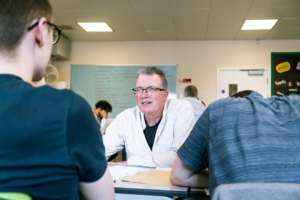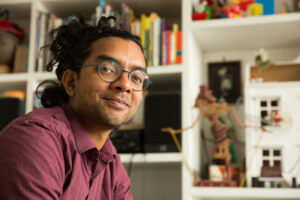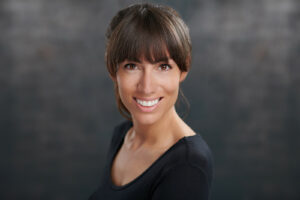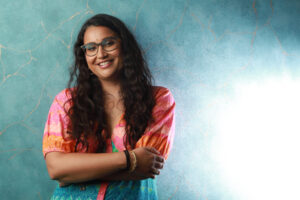Meet Our Teaching Practitioners: MA Theatre for Community and Education
We recently sat down with MA Theatre for Community and Education course practitioners Maria Askew, Arji Manuelpillai, Lerato Islam and Saul Hewish to talk creative practice, teaching and what they enjoy most about their work.
Tell us about your creative practice
Maria
“My practice involves creative facilitation, theatre-making and being generally curious about the world. I enjoy thinking holistically, and applying arts-based and creative approaches to community-building, critical thinking and self/collective expression. I am fortunate to have worked with diverse groups of people (academics; displaced people; NHS healthcare staff; young people) and moving between spaces has helped me to understand commonalities and differences in communities’ hopes and struggles. I draw on embodied practices and interdisciplinary thinking to deepen understanding, inspire action and have fun!”
Arji
“I’m a multi-disciplinary artist with a specialism in language. I’ve been a facilitator for over 18 years, leading workshops in music, storytelling, drama, visual art and poetry. My approach is centred around play, with games and exercises designed to nurture relationships and help participants express themselves. I believe creativity is a human right; it can help us feel better and bring people together.”
Lerato
“I am an applied theatre practitioner, working predominantly with teenage refugee and asylum-seeking cohorts and using drama as linguistic and psychosocial support. My practice is dynamic, high-energy and critically challenging, with a focus on gameplay and embodied learning. I’m very passionate about the capacity that the arts, and theatre in particular, have in supporting the development of young people. Through drama, young people can learn life skills, explore issues that are important to them and build strong support networks in a positive and fun environment. This supports them not only in their transition into adulthood and their new lives in the UK, but also carries the potential for deeper social transformation.”
Saul

Saul Hewish
“My current creative practice is split between time spent facilitating arts projects in prison and co-running The Social Agency: an ongoing arts-based support group for non-offending autistic adults living in Stoke-on-Trent. I have worked extensively in prison settings since 1987. Recent prison work includes a series of performing arts residencies exploring different aspects of prison history, and a special co-production with the National Justice Museum in Nottingham, in which we used prisoner-made objects in the Museum’s collection as a stimulus for story-making with serving prisoners. The latter is part of a new exhibition – Ingenuity – opening in the summer. Work with The Social Agency includes the facilitation of a participatory arts project – Atlas to Recovery – involving five community groups and realised in the creation of four giant mappae mundi.”
What do you enjoy most about your work?
Maria
“The people. Collaborating with students, visiting lecturers and colleagues is integral to my work. I am always appreciative of the way students show up and embrace reciprocal learning tasks with such courage, humour and care. I also get to explore areas that fascinate me, introducing students to fields such as psychology, decolonial feminism and systems thinking.”
Arji

Arji Manuelpillai
“I have the privilege of meeting people every single day of my life. My job is literally to make people feel good about themselves. I believe that the idea of ‘self-care’ is a fundamentally flawed concept as it centres healing around the individual. My workshops fight against that because I believe that care comes from community. It’s about bringing people together through creativity and love.”
“My job is literally to make people feel good about themselves… I believe that care comes from community.”
Lerato
“I love to witness young people’s journeys through a project. Sometimes, real transformations occur, and watching participants blossom over the weeks is a real privilege. I also love all the joy and laughter in sessions, as well as the relationship-building that happens within the space. Not everyone is lucky enough to have a job where they get to play loads of games and get creative!”
What do you teach on the MA in Theatre for Community and Education?
Maria
“I teach across all modules and deliver a mixture of workshops and talks, as well as facilitate discussion. I enjoy diving into areas such as forum theatre (a type of interactive theatre used to understand/resolve conflicts at grassroots level), ritual theatre (which can support people to resolve internal/collective blocks) and theatrical game playing (which can build confidence, as well as develop collaborative skills and cognitive abilities).”

Maria Askew
Arji
“My aim is to connect people with themselves, to give them the confidence to find connections and nurture their own innate ability to reach others. I want us to feel like kids feel when they go out into the playground, where we make games up and laugh and cry and shout freely and without fear.”
“I want us to feel like kids feel when they go out into the playground, where we make games up and laugh and cry and shout freely and without fear.”
Lerato
“I teach two areas: Facilitating Multicultural Spaces and Theatre as a Peacebuilding. I love teaching these sessions; the cohorts are always so engaged and insightful. I especially love the practical components, and seeing all the creative, unique ideas the cohort comes up with.”
Saul
“On the MA in Theatre for Community and Education, I teach two sessions. One is focused on my company Rideout – Creative Arts for Rehabilitation, and discusses a number of case study projects where I tease out some of the challenges of working in custodial settings. The second session is very much focused on making a living as a practitioner and explores some of the practicalities of running your own company, as well as an introduction to fundraising.”
What advice do you have for arts practitioners today?
Maria
“Don’t be afraid to look outside of your discipline to learn more and expand your horizons. Be open, self-reflect, support one another, be generous, have courage. There is beauty to be found everywhere.”
Arji
“Try to remember that nothing is beneath you, nobody is above you, everything that is in place is an illusion and thus anything is possible. If we want to bring change, we have to work with others and bring it together.”
Lerato
“Remember your positionality and make your political bias clear. There is no such thing as neutrality; posing as neutral is just accepting the status quo. Be explicit and committed to social transformation, and don’t shy away from having big conversations with your participants. I’m sure they will surprise you.”

Lerato Islam
“Be explicit and committed to social transformation, and don’t shy away from having big conversations with your participants. I’m sure they will surprise you.”
Saul
“Advice for new arts practitioners: look, listen and learn. The more you understand the context within which you are going to work, the better. This includes both the day-to-day experience of people living and working in that context, but also the wider socio-political context. This informs everything. This work can be hard at times, but is ultimately highly rewarding. Be proud of what you do and don’t be afraid to tell others your stories!”
Content for this article was curated by Course Assistant, and MA Theatre for Community and Education alum, Beth Carter.
Find out more about this course here.